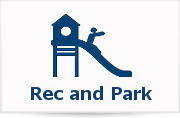Bullying and Cyberbullying are widespread problems. Learn more so you can help prevent it, or stop what has started.
It takes many forms, from verbal name-calling and teasing and spreading rumors to physical intimidation and assault and cyberbullying. Bullies pick on victims because of their race, ethnicity, religion, actual or perceived sexual orientation, gender expression, appearance, size, disability, or just because a kid is different or vulnerable and an easy target. LGBT youth are at particular risk; 85% of them experience verbal harassment at school and 40% have been physically harassed.
Bullying is not a harmless phase some kids go through or a normal part of growing up. It has serious, harmful consequences — for victims, for bullies and for school communities. Bullying negatively affects a school’s atmosphere and disrupts the learning environment; it depresses academic outcomes and harms morale for students, teachers and other staff alike.
Kids who are bullied miss more school days, have lower grades and higher drop-out rates and suffer higher rates of physical and mental health problems. Kids who bully have higher drop-out rates, are more prone to substance abuse problems and are more likely to end up with criminal convictions.
Cyberbullying- http://www.ncpc.org/cyberbullying/
If you’re like most teenagers, you spend a lot of time on a cell phone or instant messenger chatting with friends and uploading photos, videos, and music to websites.
You may have online friends whom you’ve never met in person, with whom you play games and exchange messages. Teens’ lives exist in a variety of places such as school hallways, part-time jobs, and friends’ houses. Now many teens also have lives on the Internet. And bullying has followed teens online.
Online bullying, called cyberbullying, happens when teens use the Internet, cell phones, or other devices to send or post text or images intended to hurt or embarrass another person. Cyberbullying is a problem that affects almost half of all American teens.
Whether you’ve been a victim of cyberbullying, know someone who has been cyberbullied, or have even cyberbullied yourself, there are steps you and your friends can take to stop cyberbullying and stay cyber-safe.
* How Are Teens Cyberbullied?
* How Do Victims React?
* How Can I Prevent Cyberbullying?
* What Else Can I Do To Stay Cyber-safe?
For lots of resources on ways you can learn for and to help, click on the links below:
United Federation of Teachers “Be Brave (Against Bullying)”:
http://www.uft.org/our-rights/brave
(they have printable flyers available in both English and Spanish)
National Education Association “Bully Free: It Starts With Me”:
http://www.nea.org/home/neabullyfree.html
Cyberbulling Research Center Resources Link:
http://cyberbullying.us/resources/reference-materials/
National Crime Prevention Council:
Bullying- http://www.ncpc.org/topics/bullying
Cyberbulling- http://www.ncpc.org/topics/cyberbullying
Non-Profits
Gay, Lesbian & Straight Education Network “ThinkB4YouSpeak.com”:
http://www.thinkb4youspeak.com/
Public Justice “Anti-Bullying Campaign”:
http://publicjustice.net/what-we-do/anti-bullying-campaign
Mother Awareness on School-age Kids “Cyber-Bullying”:
http://www.maskmatters.org/educate/high-school/cyber-bullying?gclid=CMLcu5XP9rkCFTFo7AodtmQArg
Dosomething.org “The Bully Text”
http://www.dosomething.org/bullytext
National Crime Prevention Council (NCPC) - A public advertising campaign aimed at preventing cyberbullying:
http://www.ncpc.org/cyberbullying/
National Criminal Justice Reference Service - Internet Safety - Cyberbullying and Cyberstalking
https://www.ncjrs.gov/internetsafety/cyber.html
http://www.ncpc.org provides information about stopping cyberbullying before it starts.
Stop Cyberbullying Before It Starts (PDF) provides useful information for parents:
http://www.ncpc.org/resources/files/pdf/bullying/cyberbullying.pdf
http://www.cyberbullying.us/ provides cyberbullying research, stories, cases, downloads, fact sheets, tips and strategies, news headlines, a blog, and a number of other helpful resources on their comprehensive public service website.
http://www.stopcyberbullying.org has a fun quiz to rate your online behavior, information about why some people cyberbully, and how to stop yourself from cyberbullying.
http://www.wiredsafety.com provides information about what to do if you are cyberbullied.
http://www.stopbullyingnow.com has information about what you can do to stop bullying.






